The HyperTexts
Famous,
Notorious and Luminous Beauties: Page 7
This page is dedicated to famous, notorious and luminous beauties of
the past and present, including actresses, poets, revolutionaries, outlaws and other
female celebrities.
Anne Sexton [1928-1974]
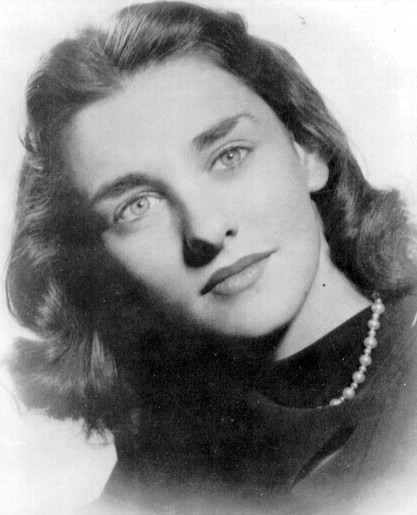
Anne Sexton was a model who became a confessional
poet, writing about intimate aspects of her life, after her doctor suggested
that she take up poetry as a form of therapy. She studied under Robert Lowell at
Boston University, where Sylvia Plath was one of her classmates. Sexton won the
Pulitzer Prize for Poetry in 1967, but later committed suicide (as did Plath) via carbon
monoxide poisoning. Topics she covered in her poems included adultery,
masturbation, menstruation, abortion, despair and suicide.
The Truth the Dead Know
by Anne Sexton
For my Mother, born March 1902, died March 1959
and my Father, born February 1900, died June 1959
Gone, I say and walk from church,
refusing the stiff procession to the grave,
letting the dead ride alone in the hearse.
It is June. I am tired of being brave.
We drive to the Cape. I cultivate
myself where the sun gutters from the sky,
where the sea swings in like an iron gate
and we touch. In another country people die.
My darling, the wind falls in like stones
from the whitehearted water and when we touch
we enter touch entirely. No one's alone.
Men kill for this, or for as much.
And what of the dead? They lie without shoes
in the stone boats. They are more like stone
than the sea would be if it stopped. They refuse
to be blessed, throat, eye and knucklebone.
Elizabeth Barrett Browning [1806-1861]
Elizabeth Barrett Browning (unpictured) came from a family that had owned slaves in Jamaica for generations. She began taking morphine as a teenager, due
to a lung condition, and would remain addicted to it until she died. After her brother drowned, she became a recluse, spending five years in
her bedroom. But she continued to write poetry, and her work brought her to the attention of the poet Robert Browning. Her tyrannical father
did not want her to marry, and after she married Browning, he disinherited her and never spoke to her again. She was a heretic, opposing
slavery and advocating women's rights, and she wrote a verse novel, Aurora Leigh, about male domination of women.
How Do I Love Thee?
by Elizabeth Barrett Browning
How do I love thee? Let me count the ways.
I love thee to the depth and breadth and height
My soul can reach, when feeling out of sight
For the ends of Being and ideal Grace.
I love thee to the level of every day's
Most quiet need, by sun and candlelight.
I love thee freely, as men strive for Right;
I love thee purely, as they turn from Praise.
I love with a passion put to use
In my old griefs, and with my childhood's faith.
I love thee with a love I seemed to lose
With my lost saints,—I love thee with the breath,
Smiles, tears, of all my life!—and, if God choose,
I shall but love thee better after death.
Maud Gonne [1866-1953] was immortalized by the great Irish
poet William B. Yeats
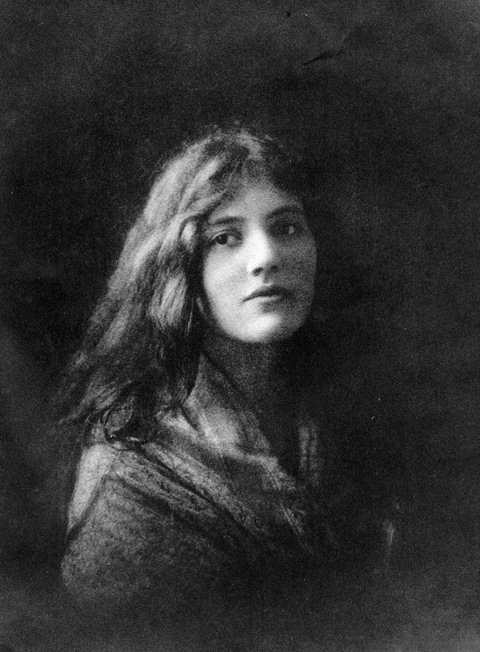
William Butler Yeats was the most famous Irish poet of all time, and his
unrequited love for Maud Gonne helped make her almost as famous as he was in
Ireland. The moving poem
below is Yeats' loose translation of a Ronsard poem, in which Yeats imagines the
love of his life in her later years tending a fire.
When You Are Old
by William Butler Yeats
When you are old and grey and full of sleep,
And nodding by the fire, take down this book,
And slowly read, and dream of the soft look
Your eyes had once, and of their shadows deep;
How many loved your moments of glad grace,
And loved your beauty with love false or true,
But one man loved the pilgrim soul in you,
And loved the sorrows of your changing face;
And bending down beside the glowing bars,
Murmur, a little sadly, how Love fled
And paced upon the mountains overhead
And hid his face amid a crowd of stars.
Edna St. Vincent Millay [1892-1950]
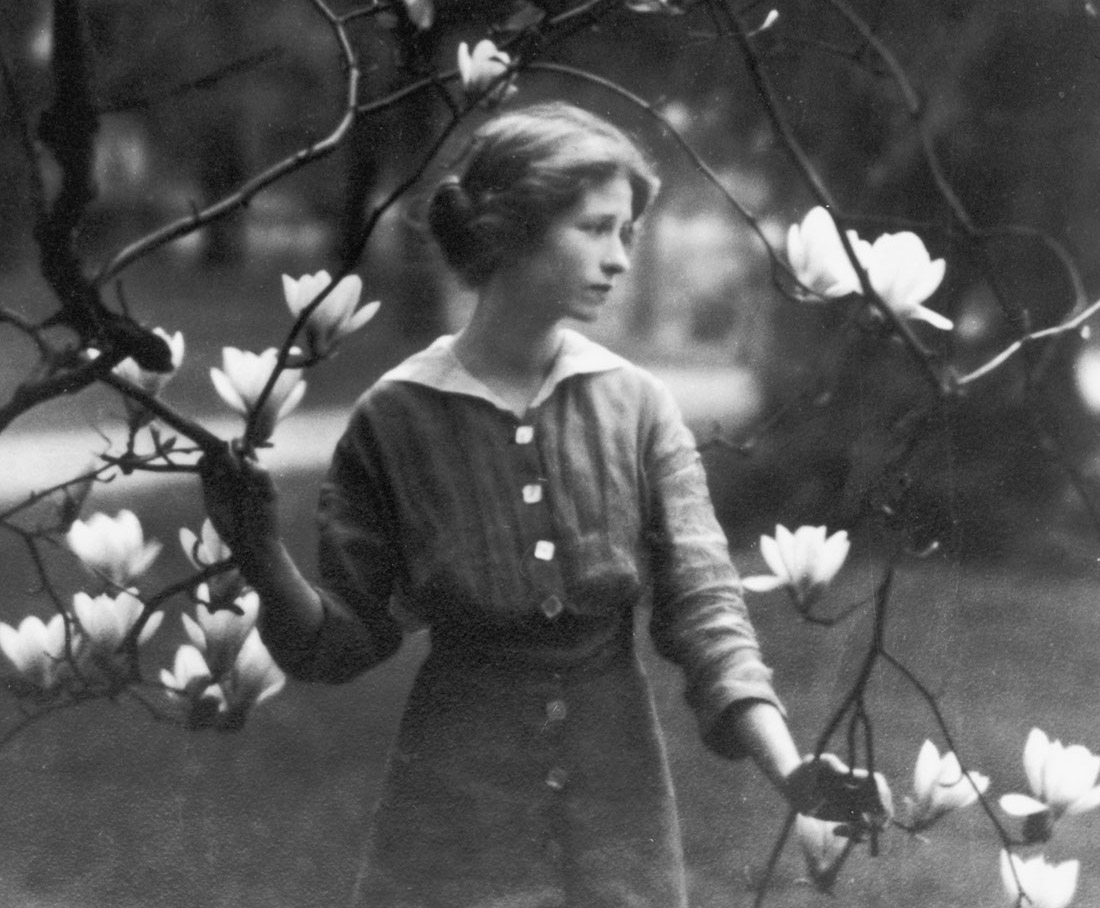
Edna St. Vincent Millay was the first woman to win a Pulitzer Prize for poetry.
She was openly bisexual and had affairs with other women and married men. When
she finally married, hers was an open marriage. Her 1920 poetry collection A
Few Figs From Thistles drew controversy for its novel exploration of female
sexuality. She was one of the earliest and strongest voices for what became
known as feminism. One of the recurring themes of her poetry was that men might
use her body, but not possess her or have any claim over her. (And perhaps that
their desire for her body gave her the upper hand in relationships.)
I, Being Born a Woman, and Distressed
by Edna St. Vincent
Millay
I, being born a woman, and distressed
By all the needs and notions of my kind,
Am urged by your propinquity to find
Your person fair, and feel a certain zest
To bear your body's weight upon my breast:
So subtly is the fume of life designed,
To clarify the pulse and cloud the mind,
And leave me once again undone, possessed.
Think not for this, however, this poor treason
Of my stout blood against my staggering brain,
I shall remember you with love, or season
My scorn with pity — let me make it plain:
I find this frenzy insufficient reason
For conversation when we meet again.
Dorothy Parker [1893-1967]
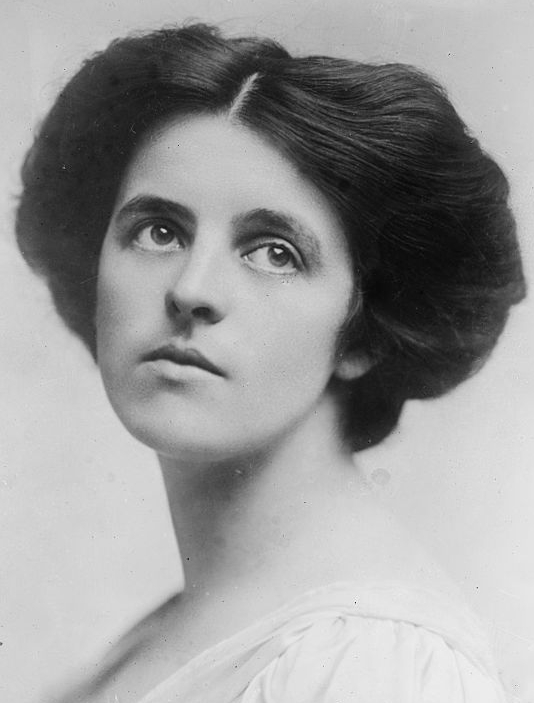
Dorothy Parker was perhaps Oscar Wilde's female double, or at the very least his
kindred spirit. Like Wilde, she left us a trove of witty epigrams:
I'd rather have a bottle in front of me
than a frontal lobotomy.
Men seldom make passes
At girls who wear glasses.
If, with the literate, I am
Impelled to try an epigram,
I never seek to take the credit;
We all assume that Oscar said it.
That woman speaks eight languages and can't say "no" in any of them.
If all the girls who attended the Yale prom were laid end to end, I wouldn't be a bit surprised.
If you want to know what God thinks of money, just look at the people he gave it to.
This is not a novel to be tossed aside lightly. It should be thrown with great force.
Evelyn Nesbit [1884-1967]
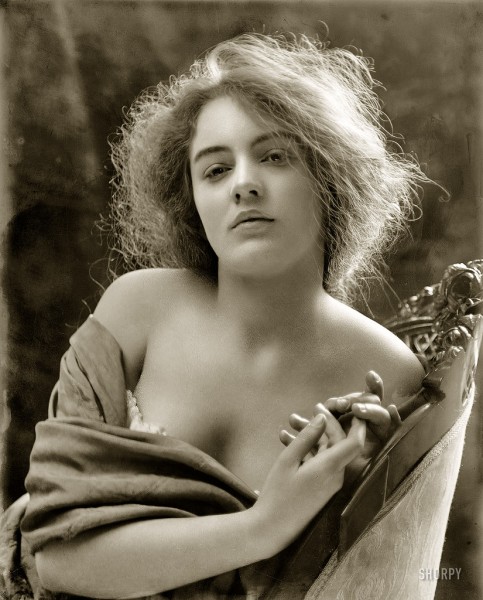
Evelyn Nesbit was one of the first supermodels.
Fanny Kemble [1809-1893]
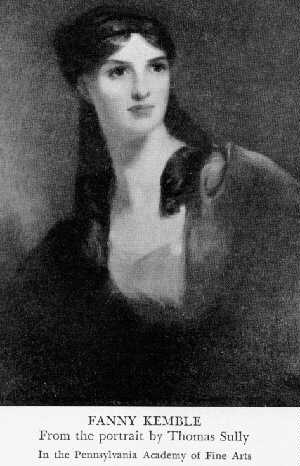
Lotta Crabtree [1847-1924]
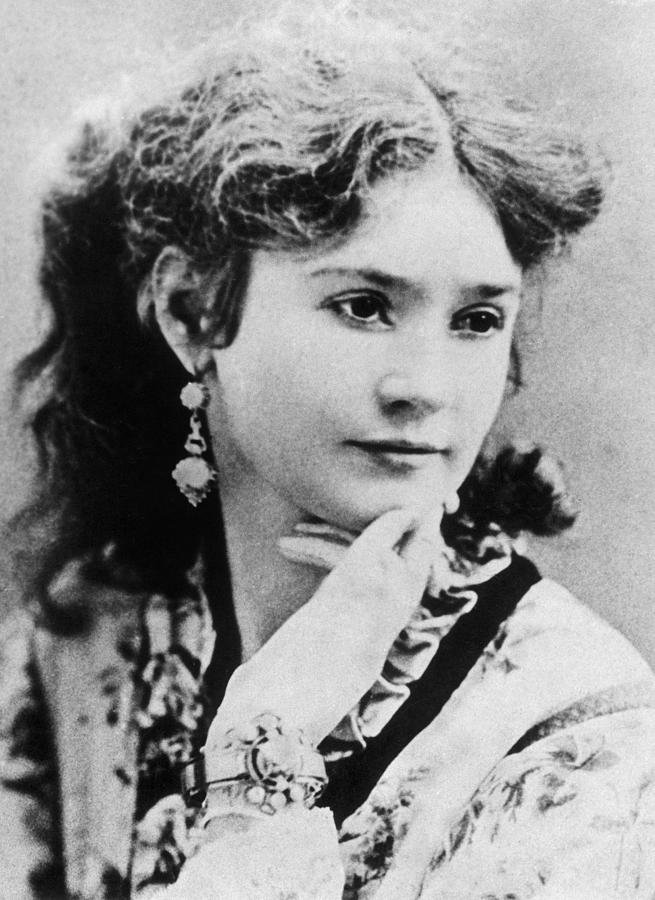
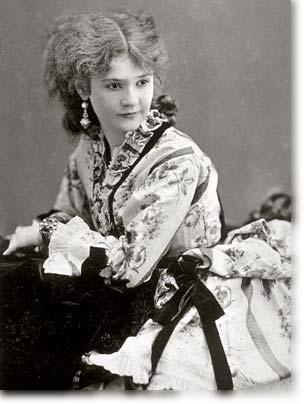
Helene Anna Held [1872-1918]
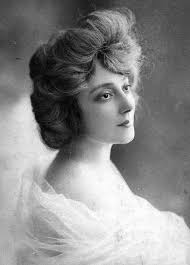
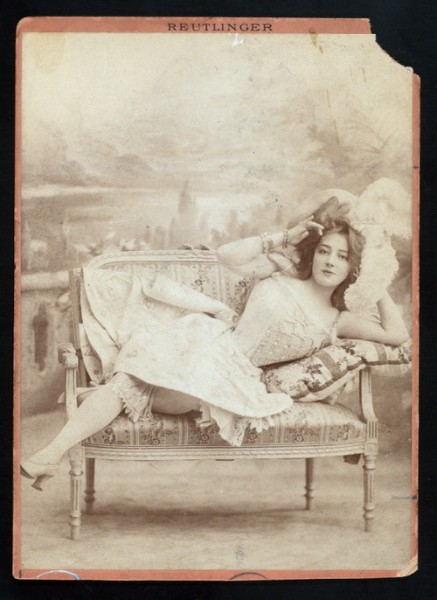
Calamity Jane [1852-1903]
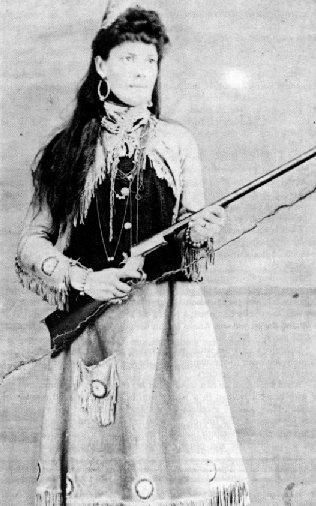
The famous gunslinger and markswoman known as Calamity Jane allegedly worked as a dance hall
girl and prostitute, among other odd jobs such as being a scout and ox team driver. It
was said that to offend her was to "court calamity." But she was also known for
her courage, compassion and generosity. By the time she teamed up with Wild Bill
Hickok in 1876 and became famous as a performer, she had lost her youthful good
looks. The picture above is the only one I could find that begins to do her
justice.
Belle Starr [1848-1889]
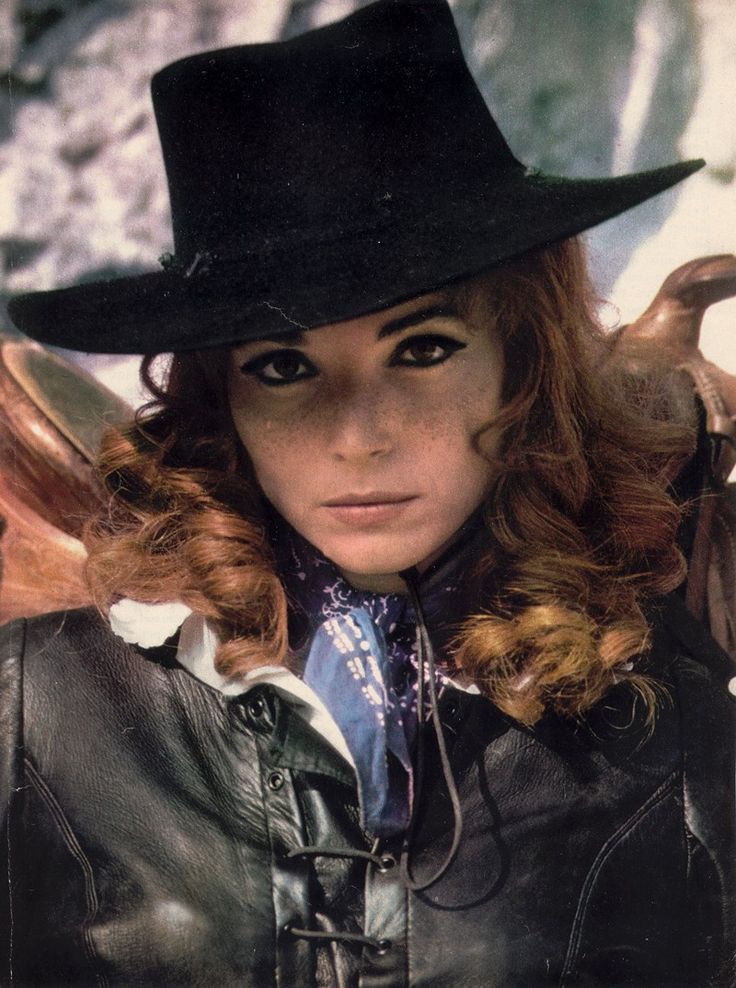
Belle Starr was called the "Queen of the Oklahoma Outlaws," the "Bandit
Queen" and the "female Jesse James." A crack shot, she would ride sidesaddle
while dressed in a black velvet riding habit, with a plumed hat, two pistols,
and cartridge belts strapped across her hips. She knew Jesse and Frank James,
and was allegedly married to Cole Younger for three weeks in 1878, although
there is no evidence of such a marriage. But she did name her ranch Younger's
Bend. Her mother was a member of the Hatfield clan. She was shot to death in an
ambush at the age of 41. Her daughter, Pearl Starr, was a prostitute who ran
bordellos, and her son Eddie was a horse thief, like his famous mother.
Helen of Troy [circa 1200 BC]
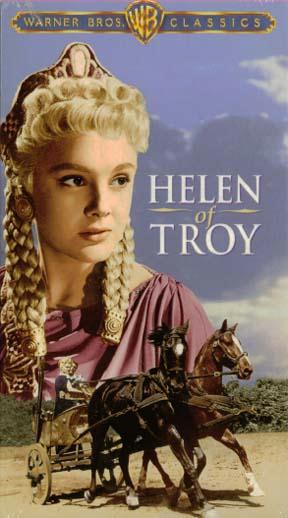
Helen of Troy had the "face that launched a thousand ships." According to
legend, her elopement with (or abduction by) Paris triggered the Trojan War made
famous by the Greek poet Homer in his immortal Odyssey and Iliad.
The actress depicted as Helen above is Rossana Podestŕ.
Sappho of Lebos [circa 630-570 B.C.]
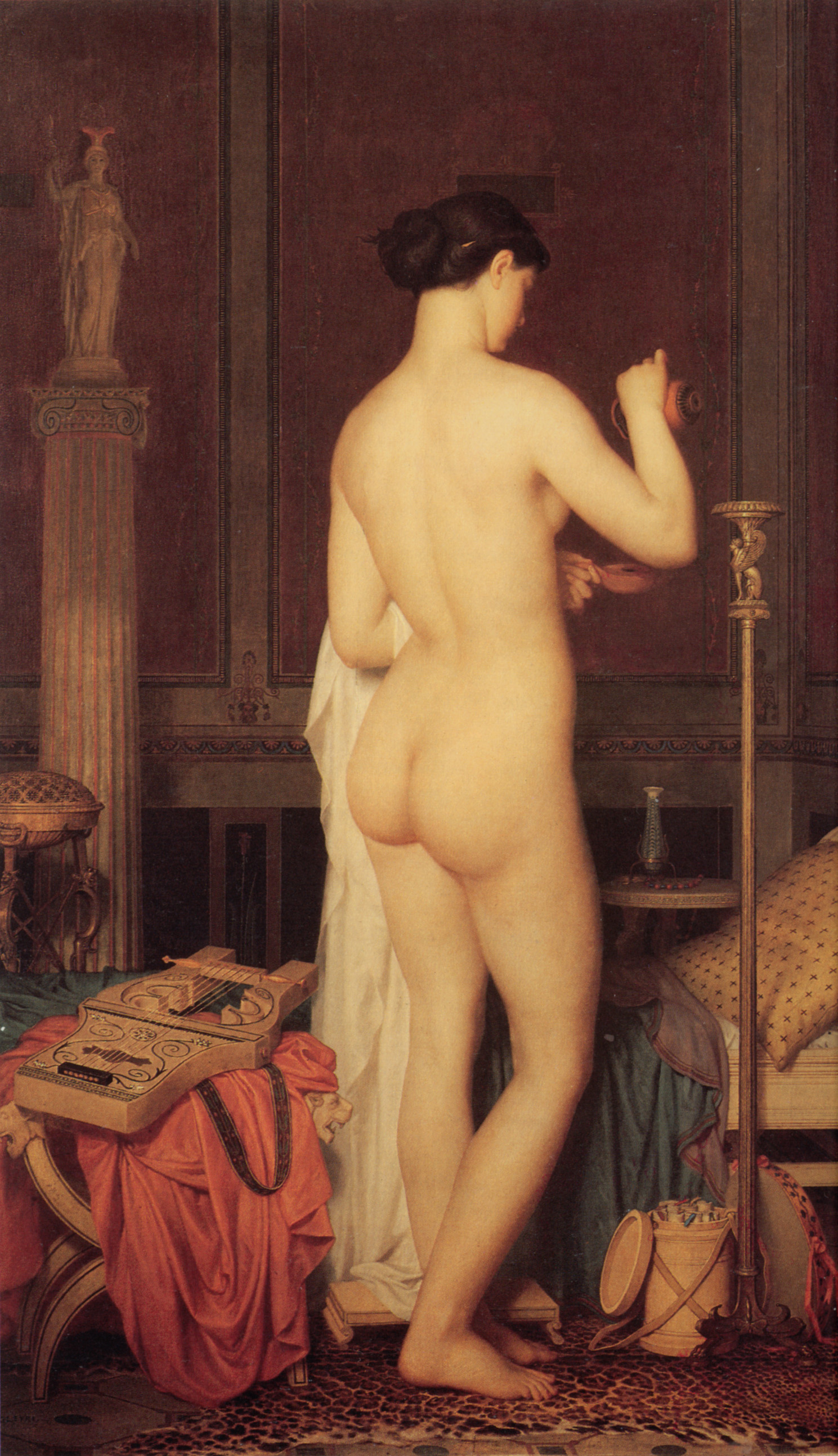
Gleyre Le Coucher de Sappho by Marc-Charles-Gabriel Gleyre
Sappho of Lesbos is perhaps the first great female poet still known to us today,
and she remains one of the very best poets of all time, regardless of gender.
She is so revered for her erotic love poetry that we get our terms "sapphic" and "lesbian" from her name
and island of residence. As you can see from the utterly stellar epigram
below, she remains a timeless treasure:
Sappho, fragment 42
translation by Michael R. Burch
Eros harrows my heart:
wild winds sweeping desolate mountains
uprooting oaks.
Lilith [circa the dawn of time]
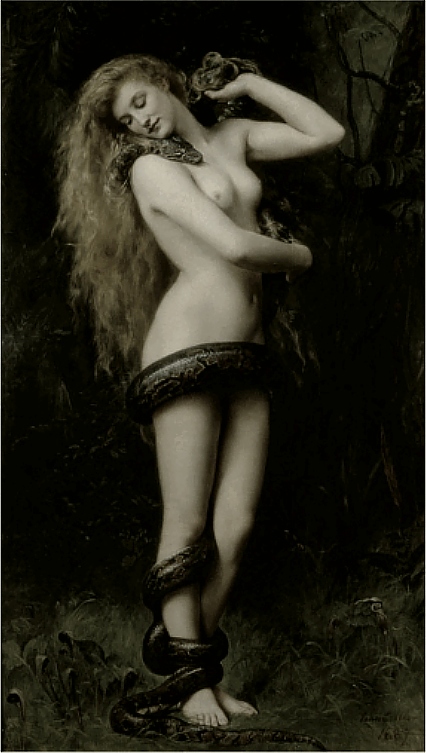
According to Jewish mythology that dates back at least to the Babylonian Talmud,
Lilith was Adam's first wife, but she refused to accept male sexual dominance
and left him, after which God formed Eve from Adam's rib. In Hebrew, LYL or
layil means "night," and in legend Lilith is often portrayed as a night
spirit who flies around seducing human beings and drinking their blood, a likely
origin of later vampire myths. Lilith and her kind were blamed for male
nocturnal emissions. Well into the middle ages, Jews created amulets to ward off
the lilim. Some Christian monks slept with crucifixes covering their
genitals, to keep the succubi (female demons) away. Michelangelo
portrayed Lilith as the Garden of Eden snake in one of his most famous works of
art.
Lilith was also immortalized, in a more positive light, by Dante Gabriel
Rossetti in his painting Lady Lilith.
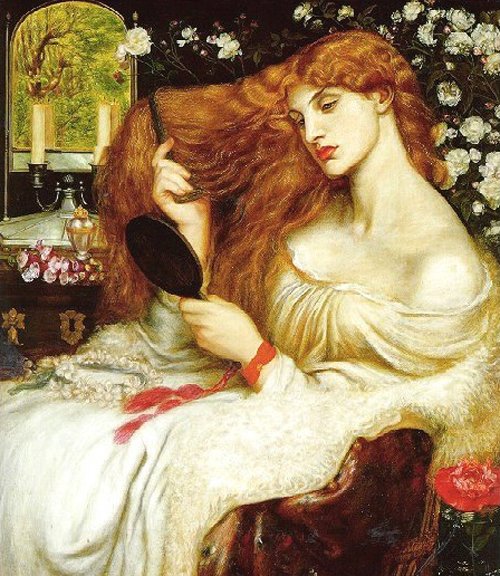
Myriam Fares ... is the Lebanese siren known as the "Queen of the Stage" the
most luminous beauty of all time? To be sure, you can check out our pictures of
her at the bottom of every page in this series.




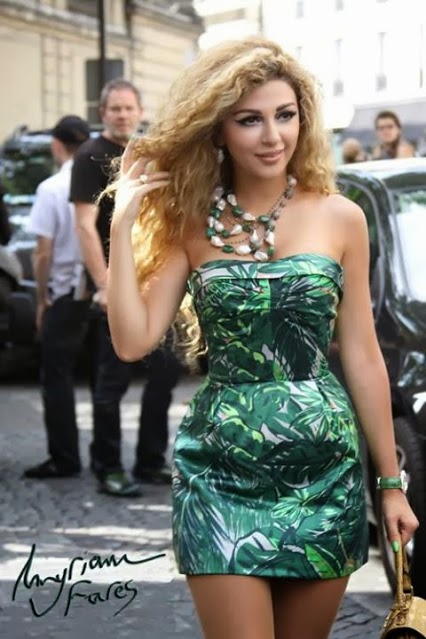
Restart at page 1
Back to page 6
Related pages:
The Most
Beautiful Women of All Time,
Famous Beauties,
Forgotten and Unknown
Beauties,
Famous Courtesans,
Famous Ingénues,
Famous Hustlers,
Famous Pool Sharks,
Famous Rogues,
Famous Heretics,
Famous Hypocrites,
Famous Forgers and Frauds,
Famous Flops,
Famous Morons,
The Dumbest Things Ever Said
The HyperTexts



















